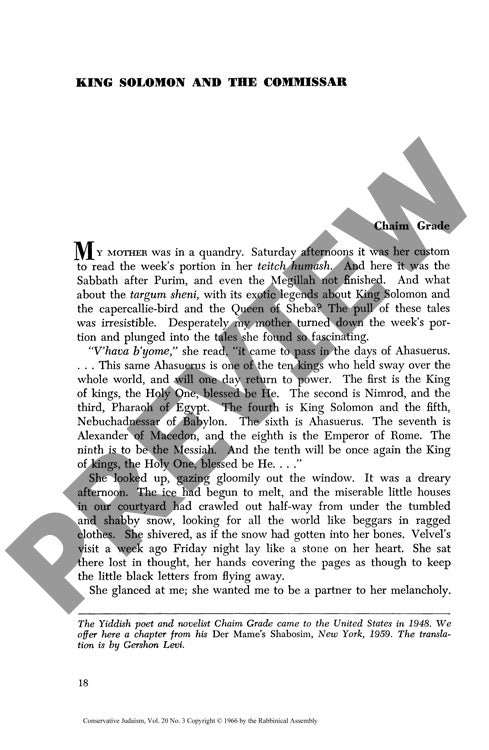King Solomon and the Commissar
Couldn't load pickup availability
This literary analysis examines a chapter from Chaim Grade's "Der Marne's Shabosim" (1959), translated by Gershon Levi, which explores themes of justice, moral authority, and historical continuity through the narrative lens of a Jewish mother's Sabbath reading. The methodology employs a close textual analysis of Grade's prose, examining how the protagonist juxtaposes biblical narratives with contemporary political realities in post-World War I Vilna. The study reveals how Grade constructs a complex dialogue between sacred text and lived experience, as the mother character connects the ancient story of King Solomon's righteous judgment with her traumatic memories of Soviet commissars' brutal justice during the frequent governmental changes in Vilna between 1918-1920. The analysis demonstrates Grade's sophisticated literary technique of embedding historical testimony within religious discourse, particularly through the mother's condemnation of a commissar who executed a soldier for stealing a watch. The findings indicate that Grade uses this narrative structure to critique both Soviet authoritarianism and Jewish complicity with oppressive systems. The work concludes that Grade's literary approach reveals the persistence of moral questions across historical periods, suggesting that true justice requires mercy rather than mere adherence to law, thereby connecting ancient wisdom literature with modern political trauma.

More Information
-
Physical Description
-
Publication Information
Published 1966
ISBN
-
Publication Credits
Chaim Grade

